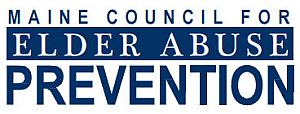Barriers to Getting Help
Incidences of elder abuse are dramatically underreported for a variety of different reasons. Some common reporting barriers are:
- The victim is dependent on the abuser for care and they are threatened with the loss of their independence if they report. When there is no one else to provide the care the elder requires, the threat of having to change their living situation is quite real.
- When the abuse is at the hands of a loved one or family member, the victim might have to overcome several emotional responses prior to feeling comfortable enough to tell someone. The elder might fear that the abuser will get in trouble and they might feel guilty or somehow to blame for the abuse.
- The victim might be fearful of the system response; this fear might be based upon a misunderstanding, lack of knowledge of options, or a lack of options.
- The victim might be fearful of retaliation and worry that the abuse will get worse if they report.
- The victim is socially isolated.
- The victim might be in denial that they are experiencing abuse, or unaware that what they are experiencing is abuse or neglect.
- Generational values can lead a victim to believe that what they are experiencing is normal, or a “family problem” not to be shared with community service providers.
- The victim might be fearful of growing old.
